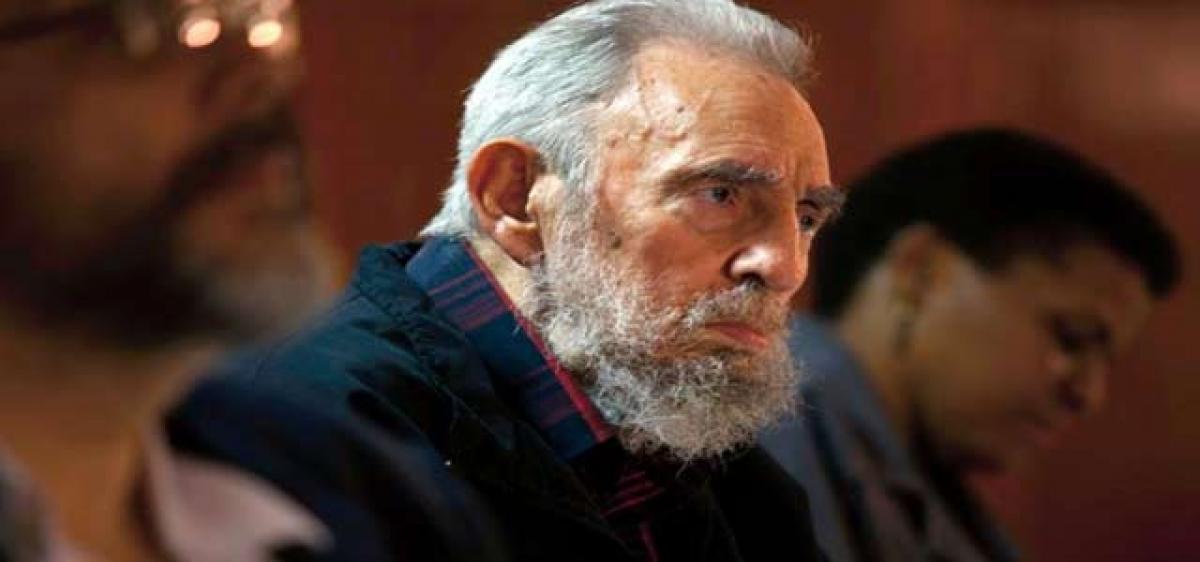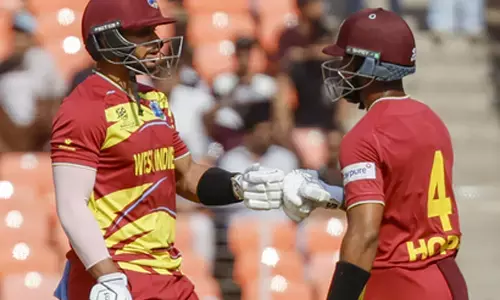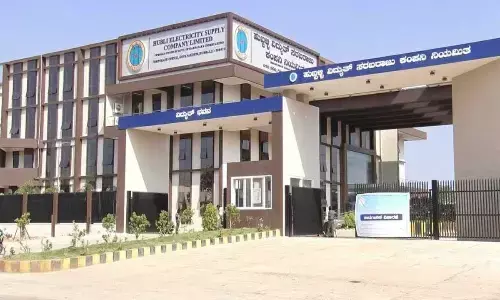Treating west’s views as ours

A trait we blindly follow, but rarely admit is to view everything from the Western prism.
A trait we blindly follow, but rarely admit is to view everything from the Western prism. Although politically incorrect in the current times, it needs stressing that we have ignored genuine friends of India, even demonised them because they were demonised by the West. Colonised we were our minds remain ‘colonised.’
Fidel Castro of Cuba who died recently was one such person. Another was Iraq’s Saddam Husain, the only one who supported India’s case on the Kashmir issue. We parrot allegations of their human rights abuses, not to be condoned, but we care to have no other perspective.
How often do we recall Vietnam’s Ho Chi Minh, Tanzania’s Julius Nyerere, the US’ Martin Luther King or South Africa’s Nelson Mandela? They drew inspiration from India’s freedom struggle and from the Gandhian non-violence and in turn inspired generations of youths, and not just from India. This is a sad reflection on our intelligentsia.
Just as India’s freedom heralded freedom from colonial yoke for a host of Asian and African countries, Castro’s liberation of Cuba from a corrupt US-backed dictatorship also hugely contributed to Latin America’s liberation from governments backed by American multinational corporations some of which backed drug lords and mafia.
According to American media reports, the US’ CIA allegedly backed a total of 638 assassination attempts against Castro, like poisoning his cigar and sending killers when engaged in scuba diving. This, incidentally, was an integral part of the US’ official policy under John F. Kennedy, one of the most popular American presidents. Even if partly true, it reflected both successive presidents’ obsession with him and also global significance of a leader of a tiny island in mighty America’s backyard.
Castro’s demise comes amidst trepidation across the world over Trump’s electoral triumph. Besides uncertainties that the US is thrown into, a global re-set is likely over shift towards ‘Americanism’ as different from ‘globalism’. The world is getting divided into excusive societies led by populist governments.
It is most unlikely that a Trump would have tolerated a Castro and equally unlikely that anyone would have come to Castro’s help. Is “one world” concept dying? Opposition to Castro came from better-off Cubans who fled to the US and actively worked to overthrow his regime, including participating in the Bay of Pigs invasion.
In retaliation, Castro, too, sent his fighters to Vietnam, Angola, South Africa and other places and ‘confronted’ his adversaries wherever he could. He helped many Africans’ quest for freedom. It is hardly surprising that Algeria that won it from the French declared nine-day mourning on his passing away.
He played the “cold war” game on his own terms. But he was also a humanist who sent doctors and nurses with medicine to distant lands, wherever there was a natural disaster. Cuba’s history of providing medical assistance stretches from a 1960 earthquake in Chile to the earthquake in Pakistan Occupied Kashmir in 2004 to the recent Ebola epidemic in Africa.
His education and healthcare programmes succeeded in generating surplus doctors for that tiny nation and he was happy to dispatch them to other developing nations in times of crisis. Cuba under him had developed a good pharmaceutical industry. Its effort to seek world market for medicines, including in India, was successfully thwarted by the pharmaceutical MNCs.
Of course, Castro was not infallible. But his human rights abuses and repression of dissent or a plethora of dubious economic decisions ought to be viewed in the perspective of unrelenting US hostility that forced him into Russian arms. He sustained on Moscow’s help till the Soviet system collapsed. Helping him out subsequently was Hugo Chavez of neighouring Venezuela.
Through troubled times, he never stopped reaching out to the world outside. His physicist-son, come to India for a conference in 2003 stressed in an interviewer with this writer that Cuba was evolving. It needed help, but it also had much to give in return.
His towering personality, his political oratory that ran for hours, his revolutionary daring and accomplishments, his vision of freedom and dignity, and above all his ability to retain the profound affection of his own people despite the rigours they have undergone due to the US blockade, carved a niche of admiration and solida¬rity in the hearts of millions around the world.
Barack Obama reached out to Cuba, ending half a century of hostility, but did not end sanctions. Obama also did not keep his election promise of closing down the “interrogation centre” at Guantanamo, a Cuban territory the US illegally held, to hold large number of those caught during wars in Afghanistan and Iraq. Whether that will happen and the deal with Cuba will survive seems doubtful under Trump.
The émigré Cuban-Americans voted fully for Trump and would do everything to get the deal cancelled. Dealing with Castro’s legacy may turn out to be one of Trump’s thorniest challenges and closing down the camp at Guantanamo seems less likely.
Coming to India, the official level relations remained good, but little of it was evident among the public save the “friendship association” activists, long gone into political oblivion. Castro visited New Delhi in 1973. On arrival, a winsome smile on his face and his huge palm extended, he broke protocol and shook hands with just everyone present at the airport.
A decade later, he was back in India. Cuba was the NAM chair when India hosted the 7th Non-Aligned Summit in 1983, probably the last of the real, all-in summit of the movement. As the outgoing chairman, Castro, in his usual bottle-green uniform, ceremonially passed the baton to Prime Minister Indira Gandhi.
This was done amidst thunderous claps and standing ovation by heads of a hundred-plus governments. Good Latino that he was, he hugged the Indian premier. It was an impromptu moment lost to the world outside as the crew of Doordarshan, the only TV channel around, was confused whether or not to show the lady premier being hugged in public. Those were conservative times.
When Mrs. Gandhi was assassinated a year later, India’s then ambassador to Cuba, Ramaiah Rajagopalan recalls, Castro arrived at the Indian Embassy, setting aside protocol, and recorded his tribute to her in the condolence book. When Rajiv Gandhi met him, as retired diplomat K. Natwar Singh has recorded. how well the two, generations apart in age and experience, got along.
Castro was the last of the charismatic leaders the last century produced, whose sacrifices, achievements and the aura they had obscured their drawbacks. Unlike some other transformational revolutionary leaders of the last century, from Vladimir Lenin and Mao Zedong to Ho Chi Minh, his cadaver thankfully won’t greet tourists to Havana. Cuba will respect his dying wish that no statues be erected, no streets be named after him.
Fidel was cremated shortly after his death – and that itself separates him from the other ‘greats’. His indefatigable spirit, though, may well be influencing humanity decades, and perhaps even centuries, hence. With his passing, we now have leaders across the world pursuing divisive agenda, are promoted by vested interests, ‘programmed’ by establishment and pitch-forked by media.
It is difficult to find a visionary among them, someone who can inspire people, not by making promises, but by performance and dedication, by carrying everyone along and not divide them on narrow lines into ‘we’ and ‘them’. The old order of the last century has changed. The era of “great leaders” is over.
By Mahendra Ved










